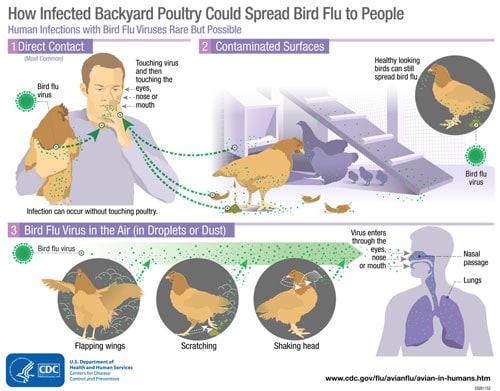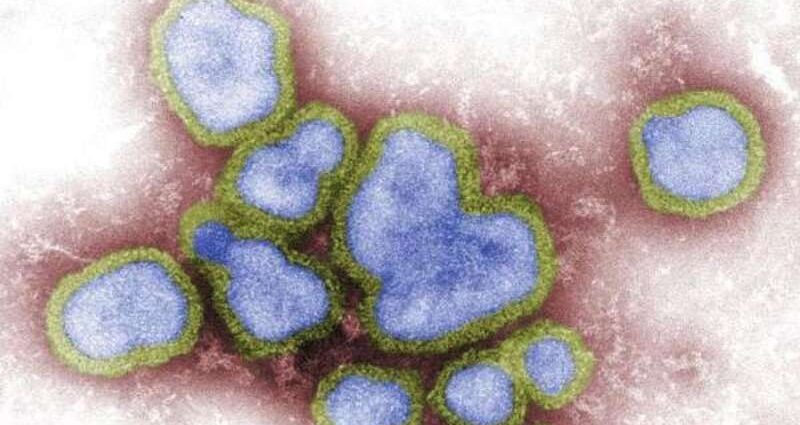Missouri's First Human Case of Avian Flu: A Comprehensive Overview
In a significant development, the Centers for Disease Control and Prevention (CDC) has confirmed the first human case of avian influenza A(H5), commonly referred to as H5 bird flu, in Missouri. This case, reported on September 6, 2024, marks a critical moment in public health, as it is the first instance of H5 avian influenza in the United States without a known exposure to infected animals.
Key Details of the Case
Identification: The case was identified through Missouri's seasonal flu surveillance system. The individual, an adult with underlying medical conditions, was hospitalized on August 22, 2024. The specimen was subsequently sent to the CDC for confirmatory testing, which confirmed the presence of the H5 virus.
Significance: This case is particularly noteworthy as it represents the 14th human case of bird flu reported in the U.S. this year, but the first that is not linked to direct contact with infected animals. Historically, human infections have primarily occurred among individuals who work closely with poultry or livestock.
Public Health Response: The CDC has stated that, based on current data, the risk to the general public remains low. However, health officials are closely monitoring the situation to understand the implications of this case and to prevent potential spread.
Media Coverage and Reactions
The news has garnered extensive media coverage, with various outlets providing insights and updates:
CDC Announcement: The CDC's official announcement highlighted the importance of ongoing surveillance and the need for public awareness regarding avian influenza. Read more here.
CNN Report: CNN reported that this case is unprecedented as it lacks a known link to sick animals, raising questions about how the virus was contracted. Read more here.
ABC News Coverage: ABC News provided details about the patient's condition and the broader implications for public health, emphasizing the need for vigilance. Read more here.
The Washington Post: This outlet noted that the case is the first non-farm worker infection amid an outbreak that began earlier this year, highlighting the evolving nature of avian flu transmission. Read more here.
NPR Analysis: NPR discussed the broader context of avian flu in the U.S., noting that while the current strain has been detected in wild birds and poultry, human infections remain rare. Read more here.

Understanding Avian Influenza
Avian influenza, particularly the H5N1 strain, is a viral infection that primarily affects birds but can also infect humans. The disease is highly contagious among birds and can lead to severe illness or death in domesticated species such as chickens, ducks, and turkeys. The mortality rate in chickens can be as high as 90% to 100%.
Transmission and Symptoms
Transmission: The virus is typically spread through direct contact with infected birds or contaminated environments. The recent case in Missouri raises concerns about potential human-to-human transmission, although such occurrences are extremely rare.
Symptoms in Humans: Infected individuals may experience symptoms similar to those of seasonal flu, including fever, cough, sore throat, and muscle aches. Severe cases can lead to pneumonia and other complications.
Public Health Recommendations
In light of this case, health officials recommend the following precautions:
Avoid Contact: Individuals should avoid contact with wild birds and poultry, especially if they appear sick or are found dead.
Hygiene Practices: Good hygiene practices, such as frequent handwashing and avoiding touching the face, can help reduce the risk of infection.
Stay Informed: The public is encouraged to stay informed about avian flu developments and to report any unusual bird deaths to local health authorities.

The confirmation of Missouri's first human case of avian influenza A(H5) underscores the importance of vigilance in public health. While the immediate risk to the general public remains low, this case serves as a reminder of the potential for zoonotic diseases to emerge and spread. Ongoing surveillance, research, and public awareness are crucial in managing and mitigating the risks associated with avian influenza.
For more detailed information, you can follow the latest updates from the CDC and other health organizations.




